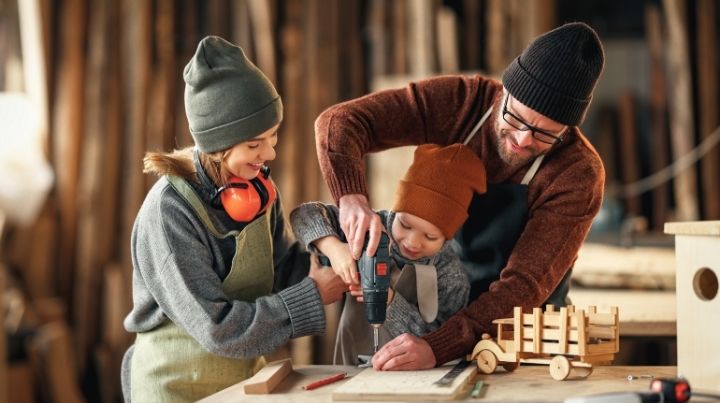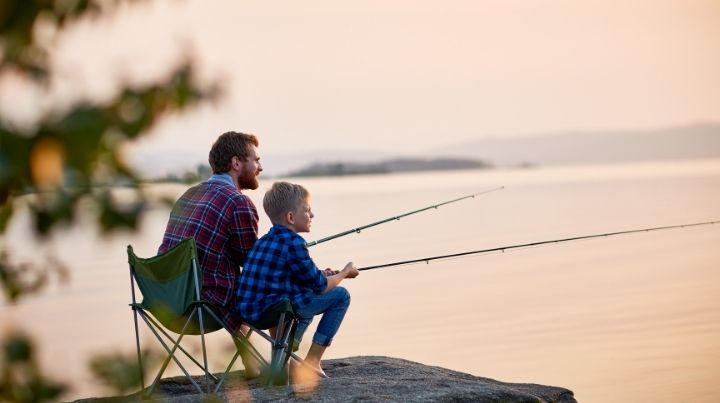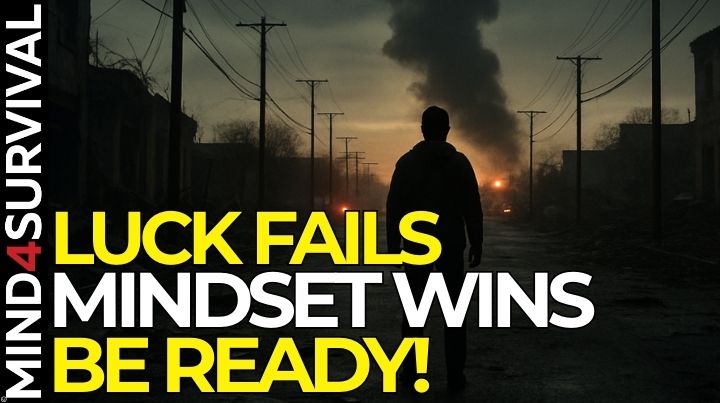Living the Prepper Life: It’s Not All Beans and Bunkers

Living the prepper life isn't all about beans, bullets, and bunkers, as sensationalist shows like Doomsday Preppers like to portray. The prepper life is about a mindset of resilience and self-reliance. You don't have to deck yourself out in camo, tote around a Molle bag, and look like you're constantly ready to go into battle.
Let's bust some of those stereotypes about the prepper life.
Anyone Anywhere Can Live the Prepper Life
Contrary to what some so-called experts will tell you, anyone, anywhere, can lead a prepared lifestyle. While some locations and skill sets are undoubtedly advantageous, we still have to live in the real world.
That means that our jobs or our children's education may keep us living in the big city. We want our family to enjoy themselves in the “normal” ways, not eschew piano lessons and hockey games to laboriously repack wheatberries and rice into mylar bags until late in the night.
Many people also have this image of preppers as either wilderness survival experts or well-trained ex-soldiers. Prepping is for normal people, too. There are so many skills involved in preparedness that anyone can find something at which they excel.

You Probably Know Some Preppers and Have No Idea
Preppers are really big on “OpSec,” a term taken from the military that is a short form of OPerational SECurity. That means we're careful about who we let know about our prepper life so that we don't end up with the entire neighborhood at our door seeking food when something terrible goes down. This isn't to say we wouldn't share. It's just to say that we're careful about who we let know about our stockpiles. Otherwise, years of putting back food and supplies could be gone in just a couple of days.
It's entirely possible that you know quite a few preppers in your day-to-day life and have no idea that they, too, are getting their stockpiles together and brushing up on their skills. After the pandemic and lockdowns wiped out supplies, more people than ever are quietly getting prepped.
Living the Prepper Life Doesn't Have to be Obvious
Just like the fact that you probably know plenty of preppers but have no clue that they're doing it, nobody has to realize what you're doing, either.
Preppers make a lot of their activities look perfectly normal. After all, it's become popular to raise a vegetable garden and keep some backyard chickens. Hiking and camping are family-friendly activities that are ordinary. Hobbies like sewing, canning, marksmanship, bread-making, DIY projects, bargain shopping, foraging, and archery are also not enterprises to make people take note of them.
But when you put it all together, you are amassing prepper skills, becoming healthier, building self-reliance, and becoming more resilient.

What Skills Are Part of the Prepper Life?
Any skill that makes you less reliant on the system can be a prepper skill. So think about some of the following:
- Producing food (gardening, scratch cooking, raising livestock)
- Acquiring food (hunting, foraging, fishing)
- Preserving food (canning, dehydrating, drying, salting, smoking)
- Producing clothing (raising fiber animals, spinning, sewing, knitting)
- Defense (shooting, self-defense without weapons, archery, securing your home, reloading ammo)
- Building (shelters, fences, simple machines)
- Repairing (if you can fix things, you don't have to buy new ones)
- Bartering (find people now to trade with – you can barter both skills and products)
- First aid and sick care (treating injuries, wound care, herbalism, using OTC meds for illnesses)
These are just a few things that can help you become more resilient, regardless of what kind of emergency you face.
This Doesn't Mean You Can Overlook Building a Stockpile
You can have all the skills in the world, but you still want to put some things aside. If things go sideways and you're out there trying to barter in the first few days, unless it's for something truly unusual, you haven't prepped. You don't have to start out trying to have enough for a year. Try to cover the following needs for two weeks for your family, and then build from there.
- Water for drinking and hygiene
- Shelf-stable food
- Sanitation supplies
- First Aid supplies
- Prescription medications
- Home supplies like soap, cleaning products, shampoo, etc.
- Pet food and supplies
- Special needs items (for example, diapers for babies, backup power for C-pap machines, and insulin fridges)
- Power outage supplies: chargers, batteries, flashlights, candles, off-grid heating and cooking methods
This is just a jumping-off point to get you started. You don't have to get everything all at once. Just be sure to be balanced in your approach. Get items from each category and keep your preps well-rounded.
Living the Prepper Life Means Peace of Mind
The prepper life provides a lot of peace of mind and helps you improve your preparedness mentality. Because you've become accustomed to thinking ahead and putting in place solutions for problems that have not yet occurred, you'll be better able to deal with them calmly and efficiently. Instead of panicking or rushing to the store to fight with someone else over the last case of water bottles, you'll be putting your plans into action, secure in the knowledge that your very lifestyle has made your family safer.
What does the prepper life mean to you? Share your thoughts in the comments.
Related Articles
FREE Guide
Read the Best Seller
Join Mind4Survival
Stay informed by joining the Mind4Survival! 100% Secure! 0% Spam!
Affiliate Disclosure...
Mind4Survival is a free, reader-supported information resource. If you make a purchase through our link, we may, at no cost to you, receive an affiliate commission.
Do You Want To Be Ready No Matter What?

Download our free 39-page guide with interactive, 7-Day Emergency Kit Checklist and take the first step toward real preparedness.
- Know exactly where to start.
- Save time and money.
- How-to build a complete Basic Emergency Kit.
- Level up your safety and security.
Join Mind4Survival
Stay informed by joining the Mind4Survival! 100% Secure! 0% Spam!






Learning how to do various things is peppering